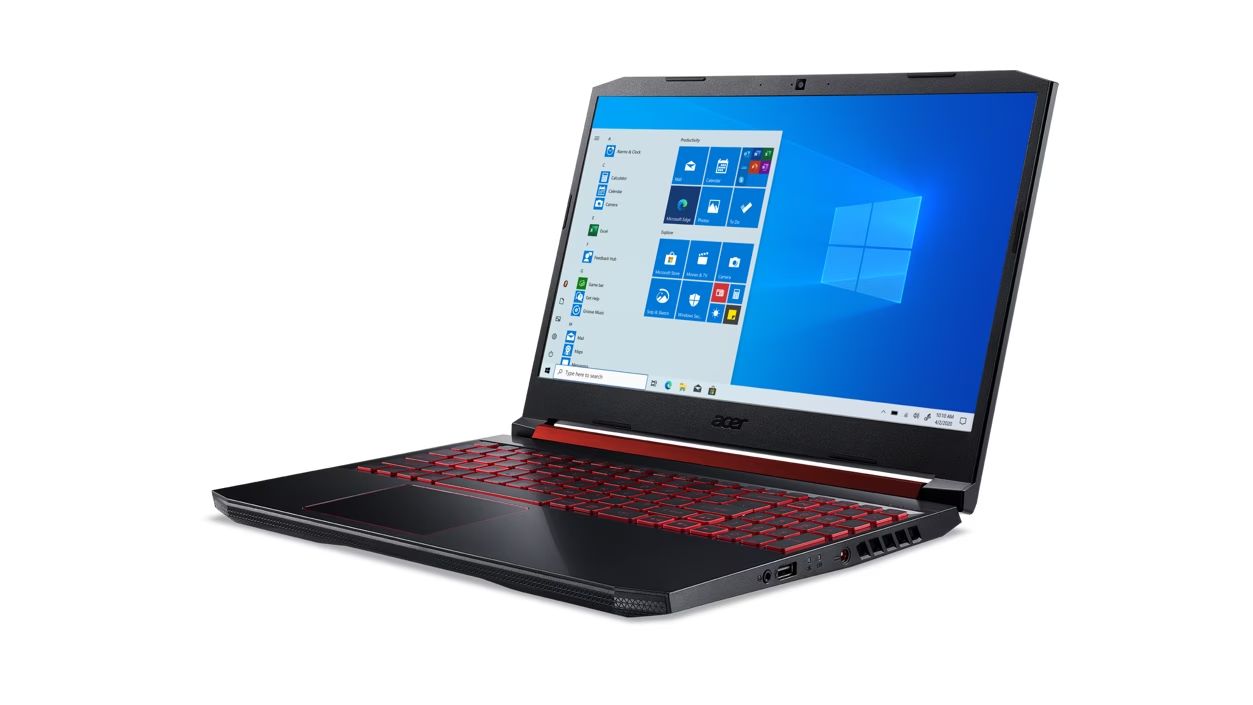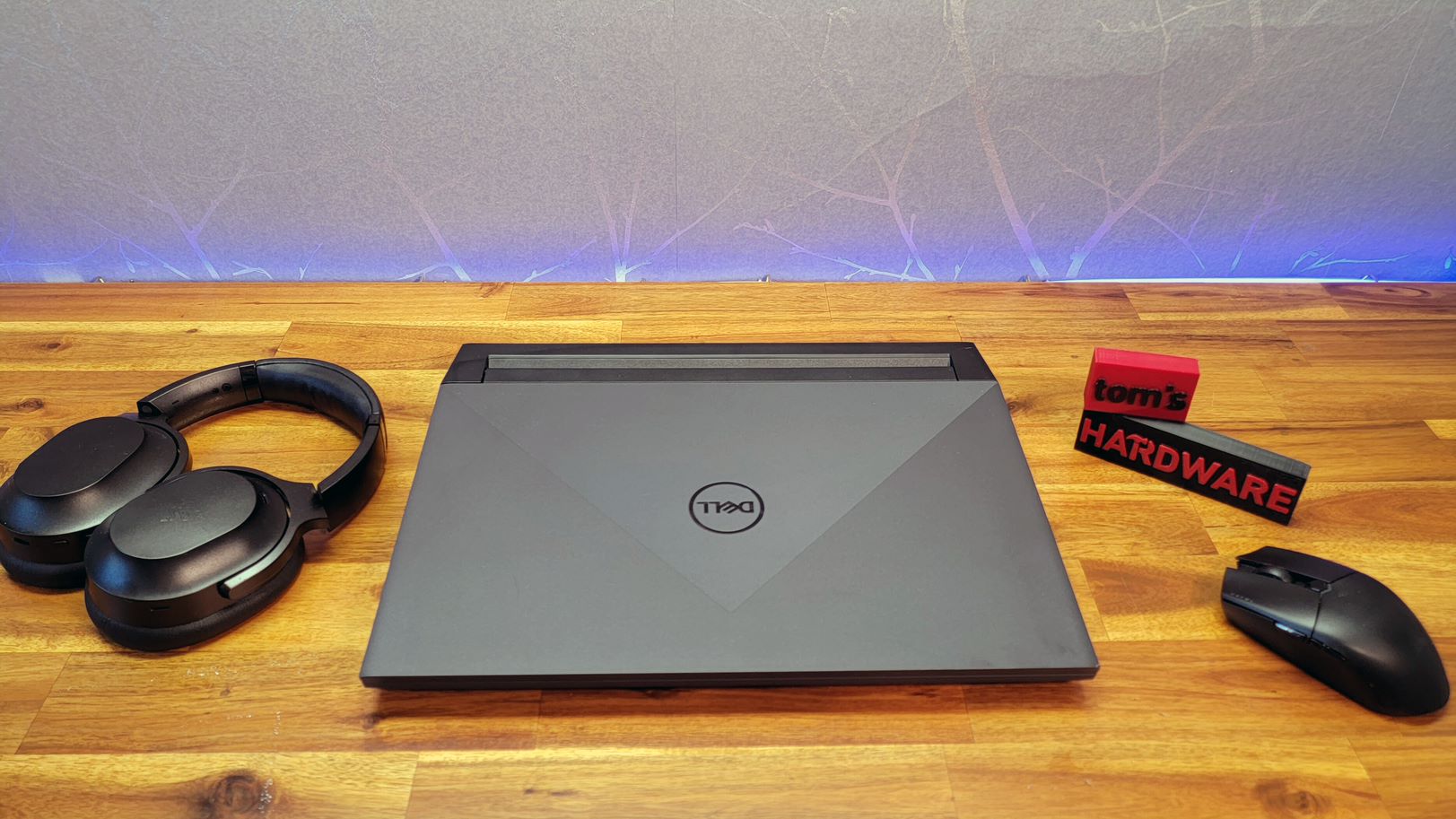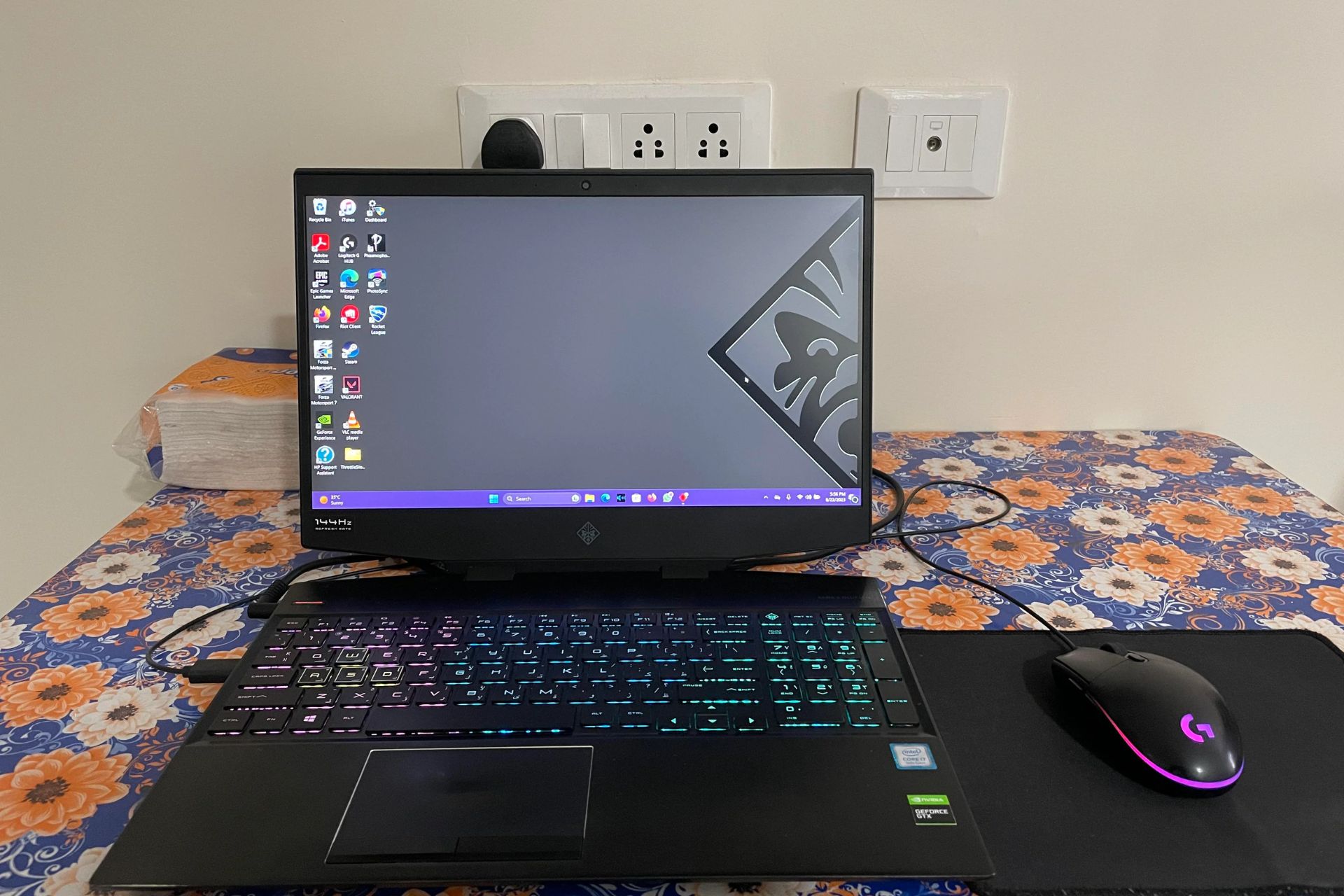Introduction
Gaming laptops have become incredibly popular in recent years, offering gamers the ability to play their favorite games wherever they go. One important consideration when purchasing a gaming laptop is storage. How much storage should a gaming laptop have? This is a common question among gamers who want to ensure they have enough space for their games, multimedia files, and other applications.
When it comes to storage options, there are two main choices: Solid State Drives (SSD) and Hard Disk Drives (HDD). SSDs provide faster data transfer speeds and improved overall performance, while HDDs offer larger storage capacities at a more affordable price point. Choosing the right storage option depends on the individual’s gaming needs and budget.
In this article, we will discuss the minimum storage requirements for gaming laptops, as well as recommended storage configurations for casual and hardcore gamers. We will also explore the importance of balancing storage with budget considerations and the benefits of using external storage solutions.
Whether you are a casual gamer who enjoys playing games occasionally or a hardcore gamer who spends countless hours immersed in virtual worlds, finding the right amount of storage is key to ensuring an optimal gaming experience.
So, if you are looking to invest in a gaming laptop but are unsure of how much storage you need, continue reading to learn more about the factors to consider and the recommended storage options for different types of gamers.
SSD vs HDD
When it comes to storage options for gaming laptops, the choice often boils down to Solid State Drives (SSD) or Hard Disk Drives (HDD). Both options have their advantages and drawbacks, and it’s crucial to understand the differences to make an informed decision.
SSDs are known for their lightning-fast data transfer speeds and improved overall performance. Unlike HDDs, which use spinning magnetic disks to read and write data, SSDs rely on flash memory chips. This means that there are no moving parts in an SSD, resulting in faster access times and reduced latency. The increased speed of SSDs allows for quicker game load times, smoother gameplay, and faster file transfers.
On the other hand, HDDs are the more traditional storage option, utilizing spinning platters to store and retrieve data. HDDs often offer larger storage capacities at a more affordable price compared to SSDs. This is particularly beneficial for gamers who have vast game libraries or who frequently work with multimedia files that require ample storage space.
While SSDs provide significant speed advantages, they come at a higher cost per gigabyte compared to HDDs. This means that you will generally get less storage capacity for the same price when opting for an SSD. However, the improved performance and seamless user experience can make it a worthwhile investment for serious gamers.
Ultimately, the choice between SSD and HDD comes down to personal preference, budget, and storage needs. If you prioritize speed, quick load times, and smooth gameplay, then an SSD is the way to go. However, if you require plenty of storage space at an affordable price, an HDD may be a more suitable option.
It’s important to note that some gaming laptops offer the option to combine both SSD and HDD storage. This configuration allows for the best of both worlds, with the SSD providing fast boot times and game loading speeds, while the HDD offers ample storage capacity for your games and files.
Now that we understand the differences between SSDs and HDDs, let’s explore the minimum storage requirements for gaming laptops to ensure a smooth gaming experience.
Minimum Storage Requirements
When it comes to determining the minimum storage requirements for a gaming laptop, several factors need to be taken into consideration. These factors include the size of the average game installation, any additional software or applications required, and the space needed for operating system updates and patches.
In recent years, game sizes have increased significantly due to advanced graphics, immersive gameplay, and additional downloadable content (DLC). While older games could be as small as a few gigabytes, newer titles can easily occupy 50 gigabytes or more of space. Therefore, it is essential to have sufficient storage capacity to accommodate these larger game installations.
Aside from game installations, other software and applications may also require storage space. This includes gaming platforms such as Steam or Epic Games Launcher, video editing software, streaming applications, and antivirus programs. Taking these additional storage requirements into account is crucial to maintain a well-functioning gaming laptop.
Operating system updates and patches also consume storage space. These updates are necessary to ensure the security and performance of your gaming laptop. As operating systems evolve, updates become larger in size, requiring more storage space to download and install. It is recommended to have enough free storage space to accommodate these updates without hindering the system’s performance.
Considering the factors mentioned above, a minimum storage requirement of 500 gigabytes (GB) is typically recommended for most casual gamers. This capacity allows for the installation of a few large games, along with additional software and operating system updates.
However, it is important to note that game sizes and storage requirements vary greatly. Some games may only require a few gigabytes of storage, while others could occupy well over 100 GB. It is always a good idea to check the system requirements of the games you plan to play to ensure you have enough storage space.
Now that we have discussed the minimum storage requirements, let’s explore the recommended storage configurations for different types of gamers.
Recommended Storage for Casual Gamers
Casual gamers who enjoy playing games occasionally and have a smaller game library can typically get by with a more modest amount of storage. While the minimum storage requirement of 500 gigabytes (GB) is still applicable, a storage capacity of 1 terabyte (TB) is generally recommended for casual gamers.
With 1 TB of storage, casual gamers have ample space to install multiple games, as well as other software and applications. This capacity allows for a comfortable gaming experience without constantly worrying about running out of storage space.
Furthermore, having additional storage capacity allows casual gamers to keep their game library organized and easily accessible. It’s not uncommon for casual gamers to have a collection of games that they rotate between, and having the storage capacity to keep them all installed eliminates the need for constant installations and deletions.
In addition to game installations, casual gamers may want to store other multimedia files such as music, photos, and videos. Having the extra 1 TB of storage space provides room for these files, without the need for external storage solutions.
While it’s important to have enough storage space for casual gaming needs, it’s also essential to consider budget constraints. Investing in a gaming laptop with a larger storage capacity may impact the overall cost. Therefore, a 1 TB storage configuration strikes a balance between meeting the storage requirements of casual gamers and keeping the cost reasonable.
Ultimately, the recommended storage for casual gamers is 1 terabyte (TB), providing more than enough space for game installations, software, and multimedia files. Having this capacity ensures a hassle-free gaming experience without the need for constant management of storage space.
Now, let’s move on to explore the recommended storage configurations for hardcore gamers who have more demanding storage needs.
Recommended Storage for Hardcore Gamers
Hardcore gamers who spend a significant amount of time playing games and have an extensive game library require a more robust storage solution. These gamers typically engage in high-end, graphically demanding games that can occupy a substantial amount of storage space. Therefore, a larger storage capacity is recommended to accommodate their gaming needs.
For hardcore gamers, it is advisable to opt for a storage configuration of 2 terabytes (TB) or more. This provides ample space to install and store a plethora of games, including large, open-world titles and games with high-resolution textures. Additionally, the larger storage capacity enables hardcore gamers to keep their favorite games readily accessible without the need to uninstall and reinstall frequently.
In addition to the extensive game library, hardcore gamers often require storage for video recording and streaming purposes. They may record gameplay footage, create content for streaming platforms, and store their video archives. These activities can quickly consume storage space, making a larger capacity necessary to cater to these needs.
Another factor to consider for hardcore gamers is the potential for future game releases and expansions. As the gaming industry evolves, games continue to increase in size, often due to downloadable content (DLC) and expansions. Having a larger storage capacity ensures that hardcore gamers can easily accommodate these updates and expansions without having to sacrifice their existing game installations.
While a storage configuration of 2 TB or more is recommended for hardcore gamers, it’s important to note that personal preferences and individual gaming habits can vary. Some hardcore gamers may require even larger storage capacities, depending on the size of their game library and other storage needs.
It’s worth mentioning that even with a large internal storage capacity, some hardcore gamers may choose to supplement their storage with external solutions, such as external hard drives or solid-state drives. External storage devices offer the flexibility to store additional games, backups, and multimedia files without filling up the internal storage of the gaming laptop.
Overall, a storage configuration of 2 terabytes (TB) or more is recommended for hardcore gamers to accommodate their extensive game library, video recording needs, and potential future game releases.
Now that we have explored the storage recommendations for both casual and hardcore gamers, let’s dive into the importance of balancing storage with budget considerations.
Balancing Storage and Budget
When it comes to choosing the storage capacity for your gaming laptop, it’s important to strike a balance between your storage needs and your budget. While having ample storage space is desirable, it can significantly impact the overall cost of the system. Therefore, considering your budget constraints is crucial in making the right decision.
For casual gamers with a smaller game library and storage needs, opting for a 1 terabyte (TB) storage configuration is a cost-effective choice. This capacity provides sufficient space to install multiple games and store other multimedia files without breaking the bank. By choosing a 1 TB storage configuration, casual gamers can enjoy a seamless gaming experience while remaining within their budgetary limits.
On the other hand, hardcore gamers with a substantial game library and more demanding storage requirements may need to invest in a larger capacity, such as 2 terabytes (TB) or more. While the cost of larger storage capacities may be higher, the convenience and flexibility it provides for storing a vast collection of games and engaging in recording/streaming activities can outweigh the additional expense for hardcore gamers. When it comes to hardcore gaming, storage becomes an essential investment to ensure a smooth gaming experience.
However, it’s also essential to consider the option of external storage devices. These devices, such as external hard drives or solid-state drives, offer a cost-effective solution for expanding storage capacity. They allow you to store additional games, backups, and multimedia files without having to invest in a higher storage capacity gaming laptop. This can be a viable option for both casual and hardcore gamers who want to balance their storage needs with their budget.
To find the right balance between storage and budget, it’s recommended to assess your gaming habits, storage requirements, and financial limitations. Consider the size of your game library, the types of games you play, and any additional storage needs, such as video recording or multimedia files. By evaluating these factors, you can determine the appropriate storage capacity that meets your needs without putting a strain on your budget.
It’s important to remember that storage can always be expanded or upgraded in the future. Many gaming laptops offer the flexibility to add or replace storage devices to accommodate changing needs. By prioritizing your budget initially and planning for future expansion, you can make a well-informed decision that balances both your storage requirements and your financial resources.
Now that we have explored the importance of balancing storage and budget, let’s discuss the benefits of utilizing external storage solutions.
Benefits of External Storage
While having sufficient internal storage capacity is crucial for a gaming laptop, utilizing external storage solutions can offer several benefits that enhance flexibility and convenience. Whether you are a casual gamer or a hardcore gamer, incorporating external storage into your setup can be highly advantageous.
One of the primary benefits of external storage is the ability to expand your overall storage capacity without having to replace or upgrade your internal storage device. This is particularly beneficial for gamers who have limited internal storage but want to store a larger collection of games or multimedia files. External hard drives or solid-state drives offer a simple plug-and-play solution, allowing you to store additional games or files externally without impacting the performance of your gaming laptop.
Another advantage of external storage is portability. Gaming laptops are designed for gaming on the go, and having external storage allows you to carry your games and files with you wherever you take your laptop. This is especially useful for gamers who frequently travel or attend gaming events. You can access your games and files on any computer by connecting your external storage device, ensuring you have your gaming library with you at all times.
External storage also provides a convenient backup solution. Gaming libraries take time and effort to build, and the thought of losing all your game progress due to a system failure or laptop damage can be devastating. With external storage, you can regularly back up your games and files, providing an extra layer of protection and peace of mind.
One benefit that is particularly relevant for hardcore gamers is the ability to separate game installations between internal and external storage devices. By storing certain games on external storage, you can free up valuable space on your internal drive for newer or more demanding games. This allows for better organization and smoother performance in terms of load times and system responsiveness.
Additionally, utilizing external storage can significantly extend the lifespan of your gaming laptop. As games and applications continue to increase in size, they can quickly fill up your internal storage and impact the overall performance of your system. By offloading bulky game installations and files to external storage, you can keep your gaming laptop running smoothly without compromising on speed or storage capacity.
Ultimately, the benefits of external storage extend beyond storage expansion. They provide portability, backup solutions, flexibility in game installations, and improved performance. Whether you are a casual gamer with limited internal storage or a hardcore gamer with extensive storage needs, incorporating external storage devices into your setup is a smart choice.
Now that we have explored the benefits of external storage, let’s wrap up our discussion.
Conclusion
When it comes to storage for gaming laptops, finding the right balance between capacity and budget is essential. Determining the storage requirements depends on factors such as the size of your game library, the demands of the games you play, and your usage of multimedia files.
For casual gamers who enjoy playing games occasionally, a storage configuration of 1 terabyte (TB) provides ample space for game installations, software, and multimedia files, without straining the budget. On the other hand, hardcore gamers with larger game libraries and more demanding storage needs should consider a configuration of 2 terabytes (TB) or more for the optimal gaming experience.
While internal storage is crucial, incorporating external storage devices offers advantages such as expansion, portability, backup solutions, and improved performance. External storage provides the flexibility to store additional games and files without compromising the performance of your gaming laptop.
Ultimately, finding the perfect storage configuration for your gaming laptop requires assessing your gaming habits, storage requirements, and budget constraints. Considering these factors will help you make an informed decision that meets your storage needs while keeping your financial resources in check.
Remember that storage can always be expanded or upgraded in the future, allowing you to adapt to changing needs. Whether you opt for a gaming laptop with built-in larger storage capacities or utilize external storage devices, the goal is to ensure a smooth gaming experience with ample space for games, files, and multimedia content.
So, as you embark on your gaming journey, choose a gaming laptop with the appropriate storage capacity, strike a balance between storage and budget, and don’t forget to leverage the benefits of external storage to enhance your gaming experience.

























